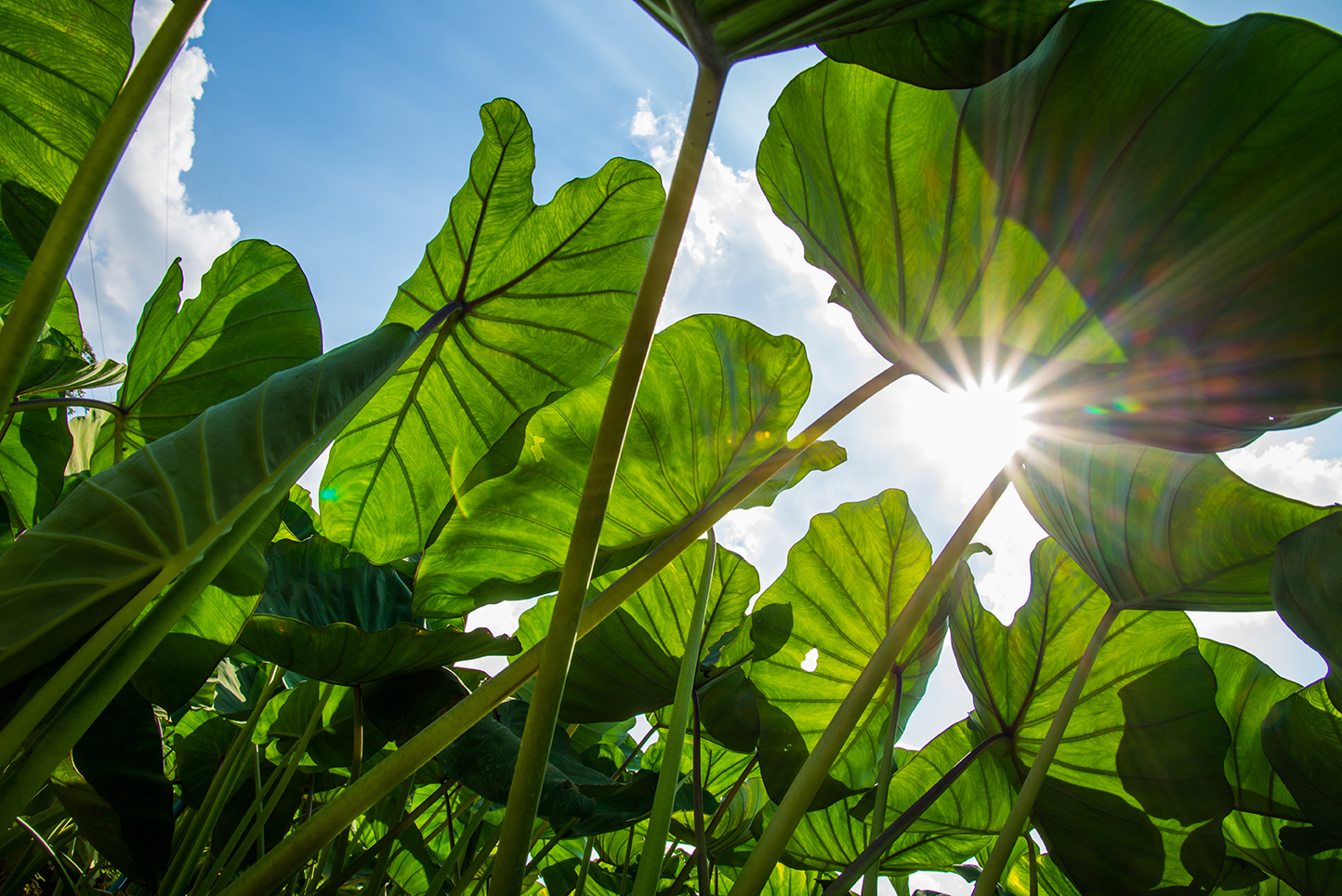From a small farm in Hawaii to College Hill to the corridors of the White House, Brown senior Kaliko Kalāhiki is making inroads as an advocate for Indigenous sovereignty, queer visibility and sustainable land use.
PROVIDENCE, R.I. [Brown University] - On the eve of their senior year at Brown University, Kalikoonāmaukūpuna "Kaliko" Kalāhiki spent the summer planting, propagating and pruning patches of kalo at the foot of Pu'u Konahuanui, one of the tallest peaks on the island of Oahu.

It was Kalāhiki's second year watching what was once an expanse of overgrown weeds and invasive species transform into a farm filled with acres of the root vegetable kalo, once a staple in Native Hawaiians' diet.
"What's really beautiful about the farm isn't just that there are patches of kalo thriving here," Kalāhiki said. "It's also that we're starting to see native bird species flourishing in that space again, like the 'alae 'ula and the 'ae'o" - Hawaiian words for the common moorhen and the Hawaiian stilt - "and what that shows, to me, is when we operate as responsible stewards of the Earth, the land can endure in a way that benefits us as people and all other living beings.
As a senior at Brown, Kalāhiki, who uses they/them pronouns, is finishing up work toward a bachelor's degree in critical Native American and Indigenous studies, one of the first members of the inaugural cohort of graduates in the new concentration at Brown. But part of Kalāhiki's heart remains at the kalo farm, where they began to envision a future that combines advocacy for Indigenous sovereignty, sustainable land use and LGBTQ+ visibility - three of their passions.
Kalāhiki is already a national symbol for the first two. Named a 2022 Champion for Change by the Aspen Institute's Center for Native American Youth, Kalāhiki visited the White House twice to participate in discussions about climate change and food sovereignty alongside Indigenous leaders and top officials in the Biden administration.
Yet it wasn't so long ago, Kalāhiki admitted, that they knew little about Hawaiian history, or about nationwide movements to reclaim the land Native Americans once stewarded.
"My family is Hawaiian, but I was actually born in Las Vegas, and I grew up in predominantly white communities in Nevada and Texas," Kalāhiki said. "I have Japanese, Chinese, Portuguese and Polish ancestry, which is pretty typical of people who live in Hawaii. But there weren't many other kids at my school who came from mixed backgrounds. The white kids would say, 'You can't be Native, because you don't live in Hawaii,' and I'd be like, 'Oh - then I guess I'm white.'"






